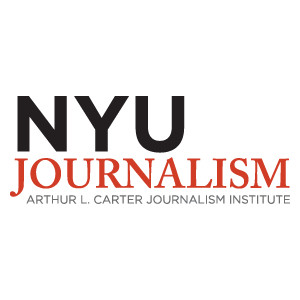
Company Description
NYU Journalism believe that journalism has a serious public mission, and can make a difference in the world.
At New York University, they believe that journalism has a serious public mission, and can make a difference in the world. They want to educate those who agree. Opportunities abound in the media world, but the opportunity to do compelling work that informs, engages and matters to the societies in which they live—this is what drives their faculty, motivates their students, and shapes their basic approach. Great journalism has always come from the great cities of the globe, and they believe that the city of New York is the best place to learn to be great. Here is where power and wealth concentrate, news and culture originate. New York, of course, is a news center and media capital without rival, headquarters for the national networks, newspapers, magazines and major publishers. But it is also a huge metropolis and more than ever an international city, teeming with immigrants, global actors and, naturally, compelling stories. Surrounded by Manhattan's Greenwich Village neighborhood, the Institute immerses students in the richness and vitality of the city, while attracting to campus many of the leaders and thinkers in the journalism profession. New York is their great classroom, and their inspiration. The first lesson they offer students is to tap into it, with their help. NYU students study as interns in almost every major news organization in the city. Their testimony tells us how valuable this experience is. They often graduate to jobs in newspapers, magazines, broadcast outlets and online operations headquartered in New York, though some choose to go elsewhere. And every day, students move outward from the classroom to the city, on assignments that take them all over town. The full-time faculty is itself of national stature in the journalism world. As writers, reporters, producers and critics, NYU professors continue to practice the journalism they teach and preach, holding the profession to its highest standards of public service and intellectual weight. Their part-time faculty of teaching professionals includes working journalists from all the major news media, who share their wealth of experience and a commitment to craft. Most have other jobs, but they teach with us because they want to encourage and influence the young people who will eventually replace them. Through its tracks, concentrations and programs, the Institute prepares students for reporting and writing in every medium and in every stylistic form. Each area pairs accomplished faculty who have worked in the field with students who seek practical instruction and intellectual depth. Coursework begins with the basic skills of reporting, writing and research, but simultaneously students are taught what journalism at its best can be—and what it should accomplish in a free and democratic society. They're encouraged to publish their work, with assignments, internships and online projects geared to that end. And they are immersed in a tradition of excellence that extends over three centuries. One part of that tradition commands the journalist to act ethically and in pursuit of truth. Another part protects the press under the umbrella of First Amendment law. A third strand in that tradition is the long history of journalism and its achievements and struggles. A fourth is the record of great work, the outstanding literature of journalism, which teaches by example. Ethics, law, history, the literature: these lend depth and direction to the practical training the program offers. Housed within the Arts and Sciences core of a leading university, the Institute treats journalism as an essential strand in the liberal arts tradition, and a critical factor in public culture. But they also recognize that news these days is a business. When their graduates enter that business, they expect them not to 'go with the flow' but to improve and enliven it. Serious journalism begins with an ideal of public service, a commitment to truth, accuracy and fairness, and a belief that democracy can work if people know what is happening in their world. (It's also supposed to be fun.) Those who find this their calling will find encouragement, support, and an endless amount to learn at NYU. Their graduates are able to work anywhere their talents take them, and they do. Students come here to gain competence in the journalist's craft, but also the tools for making it better than it is. And those two things are the essence of what they teach.
-
Manufacturer:
Media and Entertainment -
Company Website:
-
Company E-mail:
-
Company Address:
20 Cooper Square Sixth FloorNew York, NYUnited States -
We recognize our sponsors starting at $1 per entry.
Learn more at https://www.ithistory.org/benefits

